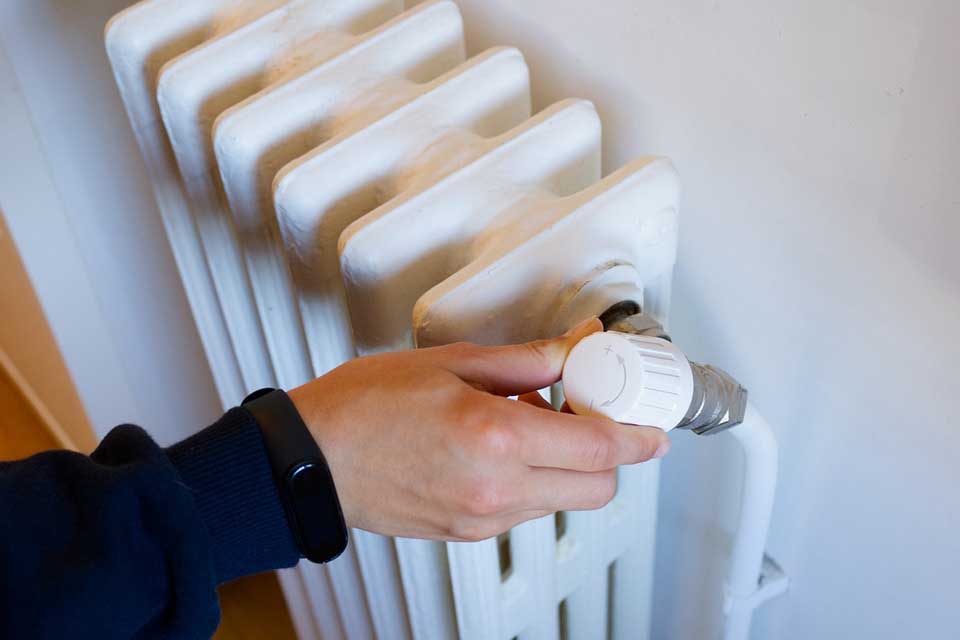The effects of the Covid pandemic have exposed and exacerbated income inequalities in Cyprus including large remuneration disparities between employees in the higher-paid public sector and those in the private sector. Moreover, in the absence of policy measures to cushion the impact of the ongoing rapid inflation on lower income households these inequalities could widen further and drive many households into poverty and greater indebtedness
As was the case globally, the rate of inflation in Cyprus as measured by increases in consumer and producer prices rose steeply during 2021. The increase in consumer prices in Cyprus in the 12 months to December 2021 reached 4.8 per cent. But more strikingly, reflecting the impact of soaring raw material and energy prices as well as higher freight costs, the industrial producer price index for Cyprus climbed by 21.8 per cent over the year to November 2021.
There is much debate as to whether high rates of inflation will persist or whether it is more of a transient phenomenon. European Central Bank (ECB) president, Mrs Lagarde, stated recently that inflation in the euro area is likely to fall during 2022 and bring the increase of consumer prices to around 2 per cent by the final quarter of this year as energy prices decline substantially. In contrast, many commentators argue that rapid inflation is likely to continue throughout 2022 and probably beyond as elevated energy prices and supply chain problems persist owing to the lingering pandemic and geo/political tensions in the face of buoyant consumer demand.
EU response to surging inflation
It appears to be the majority view in the European Commission that curbing inflationary pressures should be left mainly to the market forces of supply and demand and, accordingly, measures to control and cap prices for the bulk of the population are not recommended. The response of the commission has been largely confined to recommending that governments subsidise persons that are most vulnerable to the adverse effects of higher energy prices using revenue derived from taxes on carbon emissions. In addition, the commission calls for exempting vulnerable households from higher energy taxes.
Several European governments have stepped in to mitigate the impact of steeply rising energy costs including France, Spain, Italy and the Netherlands which have all pledged aid to cushion the impact on poorer households, while the new German finance minister has agreed to do the same. For example, in France households earning less than 2,000 euros per month have been given monthly payments of 100 euros to assist in financing higher energy bills extending through to the end of 2022.
Cyprus’ response
The response of the Cyprus authorities in attempting to curb inflationary pressures has been quite limited in providing targeted assistance to vulnerable households. The government took action in October 2021 to contain the steep rise in electricity prices by giving households and businesses a 10 per cent discount on their electricity bills. However, with electricity prices remaining at very high levels in the final months of 2021 the House of Representatives approved bills in December to reduce the value added tax on electricity bills from 19 to 9 per cent for households and businesses for three months, and from 19 to 5 per cent for “vulnerable groups of the population” for six months, but this legislation has been vetoed by President Anastasiades. So far, the only special assistance that has been pledged by the government has been the additional funds for households in mountain areas to help finance their heating bills during the winter months.
But apart from measures aimed at reducing energy costs the government appears to have done little else to try to curb the adverse effects of inflation on the population. Indeed, the government does not even seem to acknowledge that rapid inflation is persisting and can have damaging socio/economic consequences. Perhaps this is because the finance minister, at least in presenting and discussing the government budget for 2022, most optimistically projected that the average level of prices would be reduced to just 1.5 per cent this year and seems unrealistically to cling to this viewpoint.
However, energy, raw material and producer prices have now reached very high levels and elevated production costs can be expected to be passed onto the consumer as evidenced by recent increases in grain products and coffee. Even if the ‘optimistic’ scenario of the ECB is adopted that the rate of increase of consumer prices will decline to 2 per cent by the fourth quarter of 2022, the average level of prices this year would be some 3.5 per cent above those predicted in Finance Minister Constantinos Petrides’ budget scenario. Undeniably, higher prices will result in greater pressures on government expenditures and the need to increase tax revenue to finance the budget so as among other things to prevent the further accumulation of debt. Moreover, with most employers reluctant to raise wages, the purchasing power of households would be further eroded by the persistence of rapid inflation.
Inflation inequality
Wide inequalities including substantial remuneration and benefit differences between the more highly paid public sector employees and the lower-paid private sector employees have been exacerbated by the effects of the pandemic over the last two years. The average wage of a government employee is estimated to have increased by around 8 per cent since 2019, whereas the average for private sector employees, excluding those in the financial sector, is estimated to have recorded a small fall.
And surging inflation could widen inequalities even more. Indeed, the failure of the government to date to provide special assistance to many households most adversely affected by rapid inflation has given focus to the phenomenon of “inflation inequality” in so far as rising prices are taxing low-income families more heavily than rich ones. The impact of inflation is not uniform across different income groups and affects different households in different ways. In fact, in Cyprus low-income families spend a much higher proportion of their incomes on electricity, fuel for cars and heating, and food products than high-income families, the prices of which are rising at a faster rate than other goods and services. Furthermore, low-income households are not only being squeezed to a greater extent by rising costs of electricity, petroleum and grain products, but by the higher costs of just about everything else. In this connection it is noted that the United Kingdom has begun publishing price statistics enabling the impact of inflation on poorer families to be measured.
What can be done?
Most importantly, it is paramount that the incomes of poorer and even lower middle-income households be protected from rapid inflation that threatens to diminish substantially their spending power and drive a number of families into poverty and greater indebtedness. Full six-monthly cost of living adjustments should be given to employees and pensioners with incomes less than the average monthly wage of 2,000 euros. For employees and pensioners with higher incomes cost of living adjustments should be progressively less with no adjustments for monthly incomes exceeding 4,000 euros.
In addition, despite mostly unsuccessful efforts to date, the government needs to enact the main recommendation of the European Commission to “make social payments to those most at risk to help them pay for their energy bills – this can be financed with EU Emissions Trading System revenues”.
And to ensure that the government has sufficient revenue to finance promised development expenditures and social benefits compatible with an advanced European state, the tax base needs to be broadened and the tax system made more progressive. Furthermore, enhancing government revenues would help curtail the piling-up of debt that would add to intergenerational inequality.
Leslie G Manison is an economist and financial analyst, specialising in macroeconomic policy analysis, bank viability assessments and international financial relations. He is a former senior economist at the International Monetary Fund, an ex-advisor in the Cyprus finance ministry and a former senior advisor at the Central Bank of Cyprus







Click here to change your cookie preferences